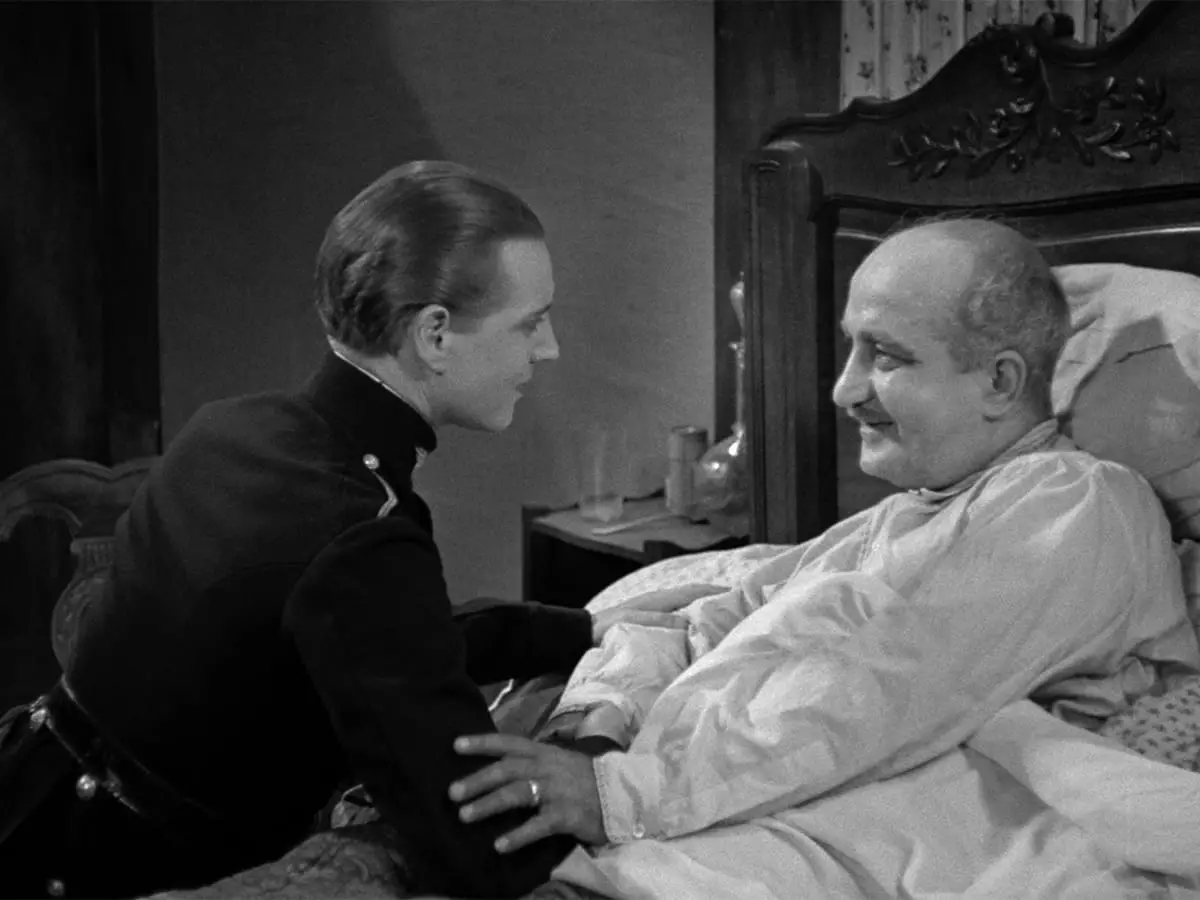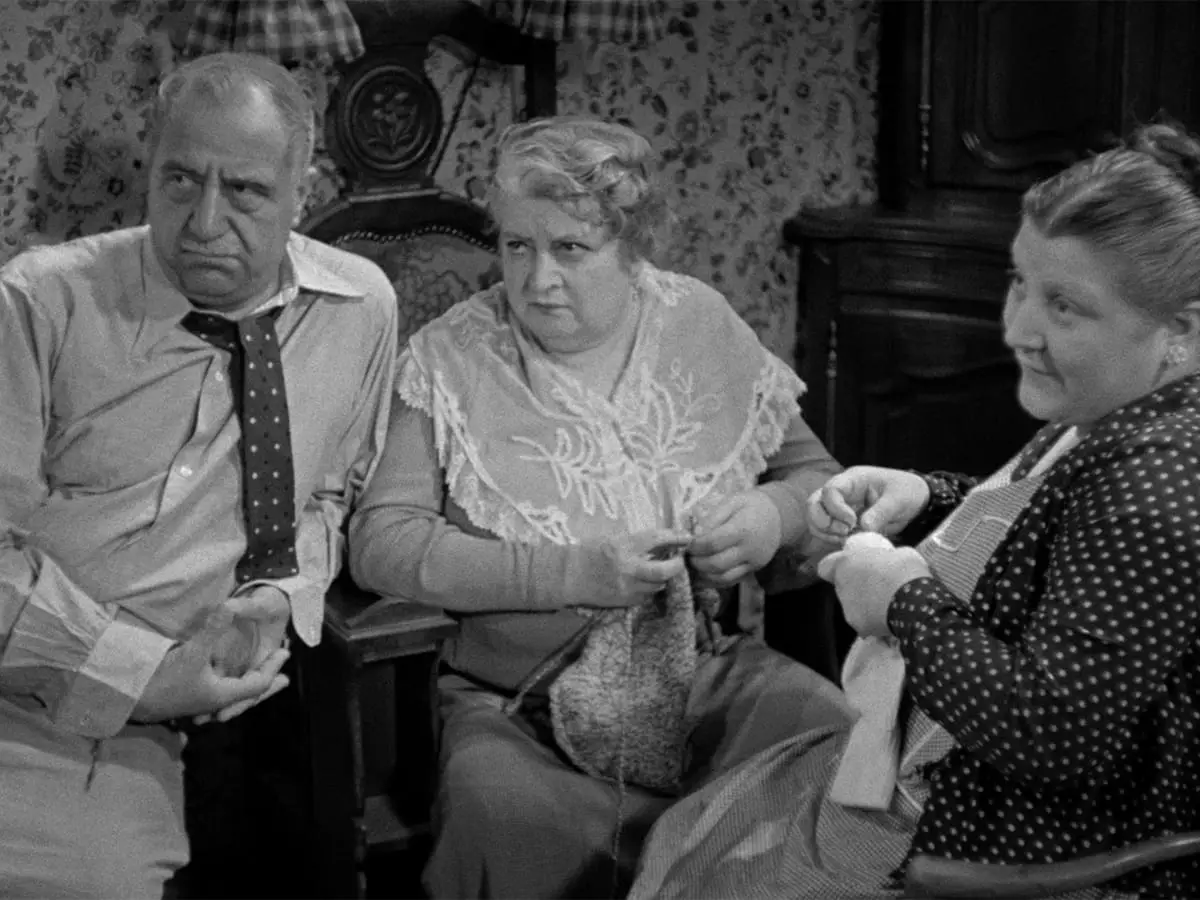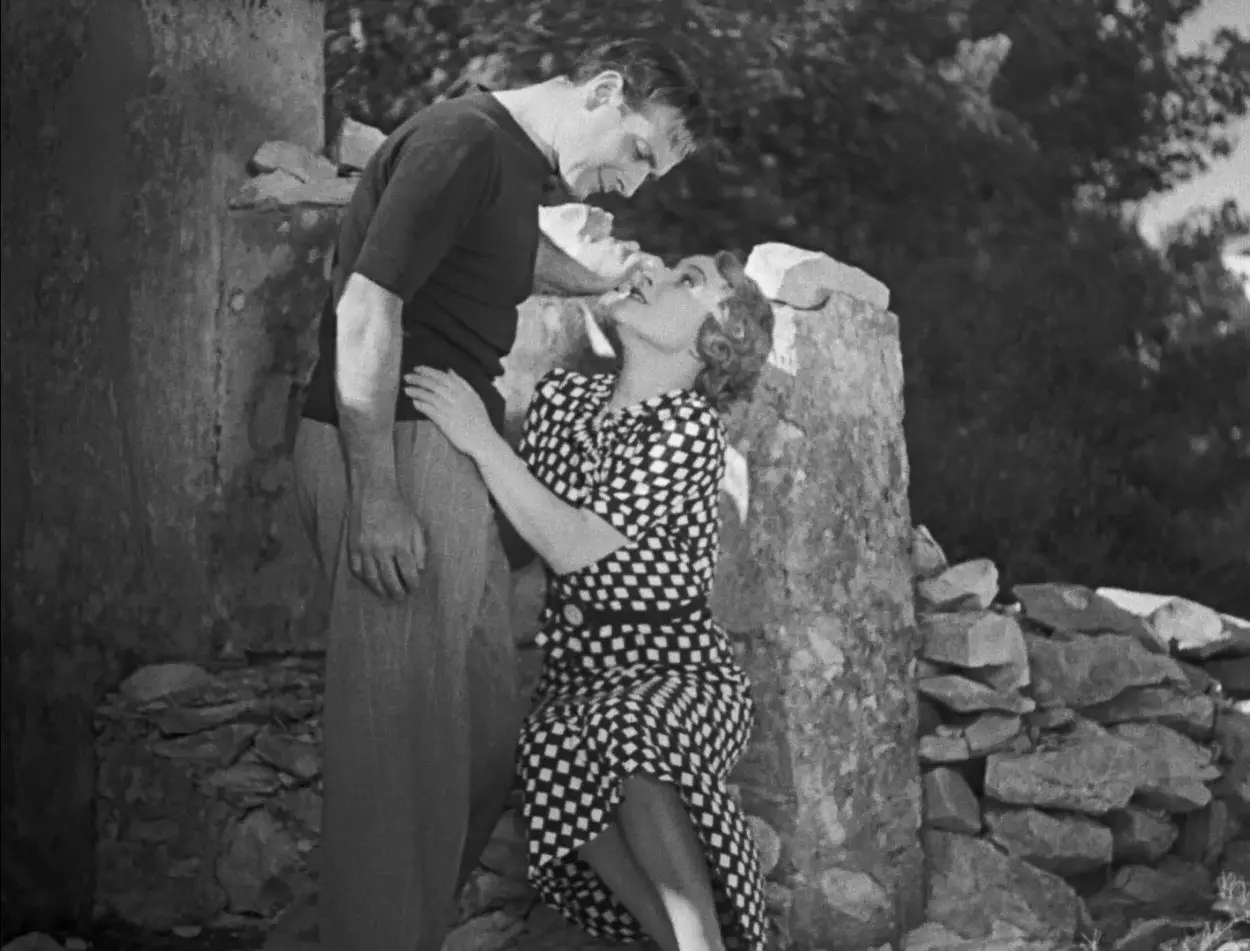Oh, Marseille Trilogy, you were doing so well.
OK, this is how it goes, guys. It’s been 20 years since the events of Fanny, and Honoré Panisse (Charpin) has died. Fanny (Orane Demazis) married Panisse in her namesake movie when she found out she was pregnant with another man’s child. Fanny, father-in-law César (Raimu) and Fanny’s 20-year-old son, Césariot (André Fouche), mourn the death of their husband, lifetime friend, and father. New drama arises when Fanny tells Césariot a secret that anyone who saw Fanny already knows: Panisse was not his biological father. Césariot sets out to locate and learn about his blood father, Marius (Pierre Fresnay), who works as a mechanic in another town. Césariot must visit in secret, as Fanny hasn’t seen her old lover in 15 years, and César hasn’t seen his son in 13 years—the two had a nasty falling-out.

César (1936) was the only film in the Marseille Trilogy to be written directly for the screen. French playwright and screenwriter Marcel Pagnol did adapt it to the stage, though, in 1946. This is also the sole entry to be directed by Pagnol. It’s fitting that Pagnol directed the last entry in his landmark film trilogy, but it might’ve been better to hand the job over to someone else.
Pagnol, while a brilliant writer, is not the best film editor. César drags occasionally, and you’ll find yourself impatiently tapping your foot at some of the drawn-out dialogue scenes. César is the longest of the trilogy, at around two hours and 22 minutes. A film closer to the lengths of the first two (two hours and seven minutes) would’ve produced a tighter, more enjoyable experience.
Pagnol also makes strange score choices. There isn’t much music in the film. When there is, it’s usually too light or too serious for what’s happening on screen. It’s a minor quibble, but one that distracts nonetheless.
Honestly, a big frustration with César is that it shouldn’t be called that. Unlike Marius and Fanny, which were definitely about and revolved around those respective characters, this isn’t César’s story. It’s a continuation of the Marius/Fanny love story. If the film belongs to anyone but those two, it’s Césariot. He’s the one who sets the main plot in motion and keeps it moving. César is barely in the movie and is rarely the driving force or the center of attention. It’s a baffling title choice. Pagnol picked it, I think, only because César was the only main character left from the other two films. I was greatly disappointed that Pagnol didn’t deliver the César-centric film he promises with the title.

There are certainly enough story elements present to make the film about César. The film begins with him mourning the loss of his dearest friend, but just forgets about that partway through. It shows the sadness that comes from losing a friend, but it doesn’t get across how you find a way to go on after that. Themes of love, loss, and moving on are a mainstay in this series. Why not continue those threads in a new way in César?
César also isn’t on speaking terms with his son. Our title character tells Césariot that he doesn’t think a reconciliation is possible. Césariot disagrees. This is a perfect setup for scenes where César and Marius hash out their issues and making up. The film almost does this. But this scene with César, Marius, Fanny, and Césariot late in the film doesn’t go much further than Marius complaining about how unfairly he’s been treated.
And that’s another thing: No one ever satisfactorily calls out Marius for continuing to be a whiny jerk with a massive persecution complex who wants to make everything about himself. César and Fanny put Marius in his place in Fanny. Here, those characters let him get away with his, quite honestly, abusive behavior towards his family. In César, Demazis transitions from a doe-eyed young woman to a 39-year-old mother beautifully and subtly. But Pagnol destroys her character development and just surgically removes her spine during the romantic climax, when Fanny still crawls back to Marius despite all his selfish behavior.

The climax would be much improved if the character addressed Marius’ behavior, and if he acknowledged said behavior. But the film also wraps up too simply. Pagnol just brushes complex interpersonal relationship problems under the rug. He wraps up César so abruptly that you’d think he ran out of time.
What is this film even about? Love never dies? That’s pretty weak if true. Marius and Fanny dealt with themes of love, dreams, and loss. César attempts to continue these lines, but it falls short. If the film had dealt with César and Marius’ love as father and son, and/or César’s dealing with the loss of his friend, as well as the romantic love of Marius and Fanny, that would’ve been different and interesting.
César is OK. Just OK. It has the potential for greatness but doesn’t quite get there. The comedy can still produce laughter, and the actors are still great. But the drawn-out scenes and the lack of character complexity and sophistication in the script from the otherwise dependable Pagnol makes it less fun to revisit these characters.
Watch César if you’re curious, but it’s certainly the weakest of the trilogy.



